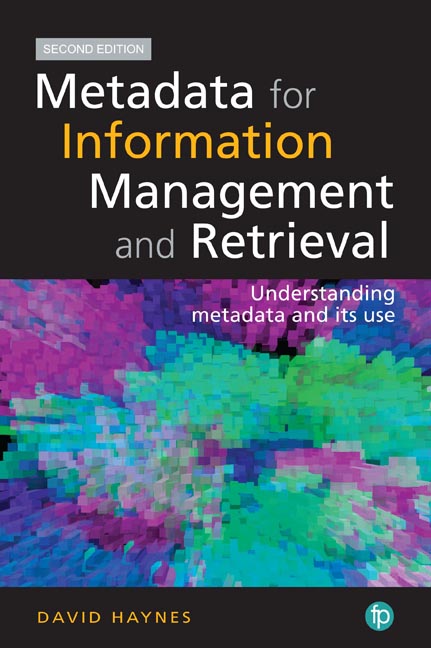14 - Politics and ethics of metadata
from PART III - MANAGING METADATA
Published online by Cambridge University Press: 08 June 2018
Summary
Overview
This final chapter considers metadata in a political context. It considers three aspects of its role in society and speculates on possible future developments. There is the ethical strand, an increasingly important considerations for those involved anywhere in the information communication chain (Robinson, 2009). It also considers where the power lies in both professional and subject domain terms and which professional groups are best equipped to develop and implement metadata standards. This section speculates on the role of metadata in the creation of new knowledge – a holy grail that has so far eluded the most advanced machine learning environments. Finally it considers the practicalities of funding. There is a huge industry dependent on metadata about online transactions, for instance. This forms the basis of digital marketing and the revenue streams for some of the largest incorporated companies, such as Alphabet (Google) and Facebook. This also raises the issue of who pays for the creation of new metadata standards, and who funds the creation of metadata on a massive scale (all those digitisation projects). Throughout, the chapter speculates on the future development and role of metadata.
Ethics
An examination of the role of metadata raises many issues about privacy, security, ownership and control. It also raises issues about the digital divide and its possible role in making information accessible to wider audiences. It has the potential to empower the marginalised, hold government to account and improve individuals’ quality of life. Understanding metadata is important in information literacy and helps individuals to navigate the turbulent sea of opinions, fact-free news and propaganda.
Privacy and ownership
In the context of social media, online usage and communications, metadata has become personal. Much of the data about internet activities and transactions is about personal activity and online behaviour. According to our original definition metadata describes an information object, whether that be raw data or more descriptive information about an individual. This is important because the treatment of metadata has become a political issue. Personal data, especially data that reveals opinions, attitudes and beliefs, is potentially very sensitive.
- Type
- Chapter
- Information
- Metadata for Information Management and RetrievalUnderstanding metadata and its use, pp. 221 - 238Publisher: FacetPrint publication year: 2018

